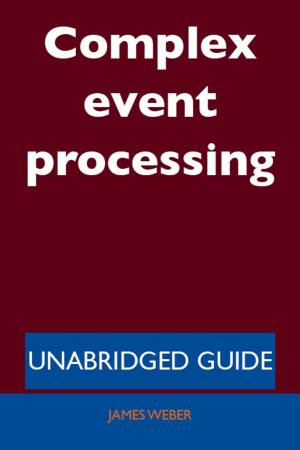The Faerie Queene - The Original Classic Edition
Nonfiction, Reference & Language, Reference, Fiction & Literature| Author: | Spenser Edmund | ISBN: | 9781486414796 |
| Publisher: | Emereo Publishing | Publication: | October 24, 2012 |
| Imprint: | Emereo Publishing | Language: | English |
| Author: | Spenser Edmund |
| ISBN: | 9781486414796 |
| Publisher: | Emereo Publishing |
| Publication: | October 24, 2012 |
| Imprint: | Emereo Publishing |
| Language: | English |
It appears difficult only because of Spensers deliberately antique English. He needed such an English because he was creating a whole new dimension of enchantment, a magical world, a land of mystery and adventure teeming with ogres and giants and witches, hardy knights both brave and villainous, dwarfs, magicians, dragons, and maidens in distress, wicked enchanters, gods, demons, forests, caves, and castles, amorous encounters, fierce battles, etc., etc.
To evoke an atmosphere appropriate to such a magical world, a world seemingly distant in both time and place from ours, Spenser created his own special brand of English. Basically his language is standard Sixteenth Century English, but with antique spellings and a few medievalisms thrown in, along with a number of new words that Spenser coined himself. The opening lines of the poem are typical :
A Gentle Knight was pricking on the plain, / Y cladd in mightie armes and siluer shielde, / Wherein old dints of deepe wounds did remain, / The cruell markes of many a bloudy fielde.... (page 41).
If, instead of reading with the eye, we read with the ear or aloud, the strange spellings resolve themselves into perfectly familiar words such as clad (clothed), mighty, arms, silver, shield, deep, cruel, marks, bloody, field. And Y cladd is just one of those Spenserian medievalisms that simply means clad or clothed (i.e., wearing).
The only two words in this passage that might cause problems for the beginner are pricking and dints, and it doesnt take much imagination to realize that these must refer, respectively, to riding (i.e., his horse) and dents. But if you cant guess them, an explanation is provided in the useful list of Common Words at the back of the book.
Once youve used that 2-page list for a little while, progress through Spensers text becomes a snap. And learning a few hundred words is a small price to pay for entrance into one of the most luxuriant works ever produced by the Western imagination, and one that once entered you will often want to return to.
Spenser is one of Englands very greatest writers. And he was writing, not for critics, but for you and me. Admittedly his language can be a bit tricky at first, and he certainly isnt to be rushed through like a modern novel. His is rather the sort of book that we wish would never end.
His pace is leisurely and relaxed, a gentle flowing rhythmic motion, and thats how he wants us to read him. To get the hang of things, try listening to one of the many available recordings. And if you hit a strange-looking word, dont fret or panic. Try to hear the word in your mind, and guess at its meaning. That will often help, but if it doesnt, Roches list or his brief and excellent notes should.
So take Spenser slowly, and give his words a chance to work their magic. Let him gently conduct you through his enthralling universe, one that you will find both wholly strange and perfectly familar, since human beings and their multifarious doings are Spensers real subject, and somewhere in one of his enchanted forests you may one day find yourself.
It appears difficult only because of Spensers deliberately antique English. He needed such an English because he was creating a whole new dimension of enchantment, a magical world, a land of mystery and adventure teeming with ogres and giants and witches, hardy knights both brave and villainous, dwarfs, magicians, dragons, and maidens in distress, wicked enchanters, gods, demons, forests, caves, and castles, amorous encounters, fierce battles, etc., etc.
To evoke an atmosphere appropriate to such a magical world, a world seemingly distant in both time and place from ours, Spenser created his own special brand of English. Basically his language is standard Sixteenth Century English, but with antique spellings and a few medievalisms thrown in, along with a number of new words that Spenser coined himself. The opening lines of the poem are typical :
A Gentle Knight was pricking on the plain, / Y cladd in mightie armes and siluer shielde, / Wherein old dints of deepe wounds did remain, / The cruell markes of many a bloudy fielde.... (page 41).
If, instead of reading with the eye, we read with the ear or aloud, the strange spellings resolve themselves into perfectly familiar words such as clad (clothed), mighty, arms, silver, shield, deep, cruel, marks, bloody, field. And Y cladd is just one of those Spenserian medievalisms that simply means clad or clothed (i.e., wearing).
The only two words in this passage that might cause problems for the beginner are pricking and dints, and it doesnt take much imagination to realize that these must refer, respectively, to riding (i.e., his horse) and dents. But if you cant guess them, an explanation is provided in the useful list of Common Words at the back of the book.
Once youve used that 2-page list for a little while, progress through Spensers text becomes a snap. And learning a few hundred words is a small price to pay for entrance into one of the most luxuriant works ever produced by the Western imagination, and one that once entered you will often want to return to.
Spenser is one of Englands very greatest writers. And he was writing, not for critics, but for you and me. Admittedly his language can be a bit tricky at first, and he certainly isnt to be rushed through like a modern novel. His is rather the sort of book that we wish would never end.
His pace is leisurely and relaxed, a gentle flowing rhythmic motion, and thats how he wants us to read him. To get the hang of things, try listening to one of the many available recordings. And if you hit a strange-looking word, dont fret or panic. Try to hear the word in your mind, and guess at its meaning. That will often help, but if it doesnt, Roches list or his brief and excellent notes should.
So take Spenser slowly, and give his words a chance to work their magic. Let him gently conduct you through his enthralling universe, one that you will find both wholly strange and perfectly familar, since human beings and their multifarious doings are Spensers real subject, and somewhere in one of his enchanted forests you may one day find yourself.















